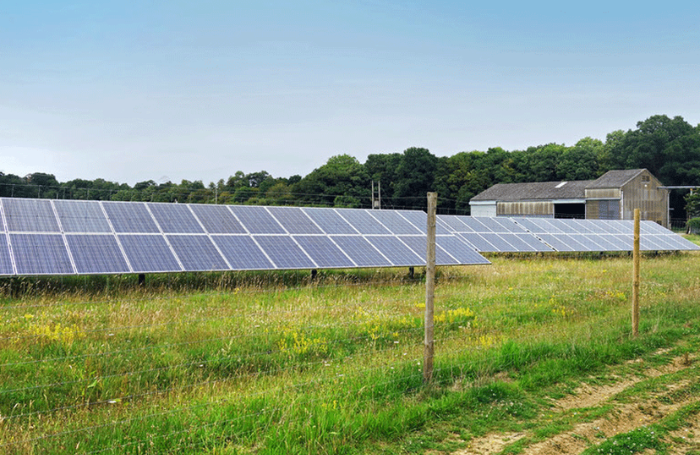With a general election on the horizon, this party conference season provided an opportunity for political parties to share their vision before the public heads to the polls. Subjects included housing and planning, addressing the climate emergency, and announcements from across the political spectrum that will have an effect on the work of RIBA Members.
New homes and planning reforms
A top priority for the next government will be to boost the supply of new homes across the country while emphasising and promoting the importance of high standards in quality, design and sustainability. This is a key ask set out in our manifesto, which we launched in the run up to party conference season.
In Liverpool, building homes was at the top of the Labour Party’s agenda. If elected, Leader of the Opposition Sir Keir Starmer said the party would build 1.5 million new homes over a five year period. Plans to get building are not limited to homes though – new towns, new parks and new public services are on the table, alongside plans for better infrastructure too.
Labour hopes that their plans to overhaul the UK’s “antiquated” planning system will get the country building again, unlocking growth and helping to restore economic security.
At the Conservative Party Conference in Manchester, Prime Minister Rishi Sunak unveiled a £1.1 billion pot of funding for 55 towns. Each town will get £20 million over a decade and will be able to shape what their investment looks like locally. This is a welcome step to help level up across the country by revitalising areas with local input.
On housing, Secretary of State for Levelling Up, Housing and Communities, Michael Gove, confirmed that the Renters Reform Bill will be back in Parliament this autumn. The bill is intended to improve the fairness of the private rented sector. Housing Minister Rachel Maclean was also a frequent speaker across the conference fringe, noting on several panels that urgent work needed to be undertaken to tackle the housing crisis across the country.
The scale and complexity of the housing crisis is undeniably stark. There is consensus from the main parties that we need to build more homes at pace. However, we cannot sacrifice quality in doing so. Much greater investment in local authority planning departments, including qualified design expertise, will also be vital to speed up decisions and guarantee high quality buildings and places.

Tackling climate change
With the built environment sector responsible for around 37% of global energy-related carbon emissions, we will not reach net zero without deep carbon reductions. To help achieve this, we also need strong leadership from government.
Newly appointed Secretary of State for Energy Security and Net Zero, Claire Coutinho, announced £80 million to bolster the Social Housing Decarbonisation Fund. This funding means that an additional 9,500 social housing tenants can benefit from energy efficiency improvements, including insulation measures and low carbon heating. This will help to cut carbon emissions but also is an important part of helping to tackle fuel poverty.
Starmer promised to speed ahead with investment, job creation and Great British Energy, with the understanding that responding to the climate challenge can generate opportunities too. Shadow Secretary of State for Energy Security and Net Zero Ed Miliband also reiterated Labour’s commitment to its Warm Homes Plan, with the intention of lifting millions out of fuel poverty and insulating 19 million homes. There was also a real focus on job creation.
In Bournemouth, Liberal Democrat Leader Ed Davey stated the UK must lead on tackling climate change and criticised the Conservative Party for “trying to hide from it”. Embracing early investment, ingenuity and innovation – while working to reach net zero – would be a priority for a Liberal Democrat government.

What next?
Regardless of who forms the next government in 2024, RIBA will continue to work closely with Parliamentarians and policymakers to promote the UK architecture sector’s work both here and abroad.
Our Policy and Public Affairs team are working hard to bring RIBA’s work on the climate emergency, the housing crisis and promoting safer homes to the top of the agenda – whether from our desks or the conference centre. Keep up to date with our latest climate action and planning consultation responses.
For more information, contact the RIBA Policy and Public Affairs team: policypublicaffairs@riba.org.









